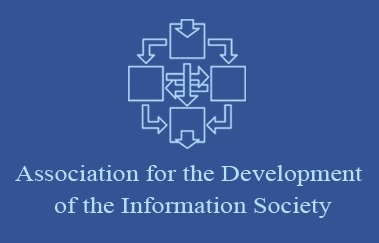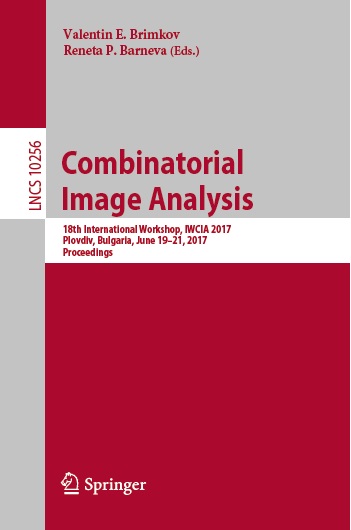

|
• General Information • Important Dates • Keynote Speakers • Committees • Paper Submission • Registration Procedure • Venue • Scientific Program • Journal Publications • Social Program • Useful Links • Contact us 



|
Next edition of IWCIA will be held in Porto, Portugal, Nov. 22-24, 2018.Photos:Many thanks to all participants! Click here to download a picture gallery of the conference.Beautiful albums were shared by Maria Jose Jimenez and Phuc Ngo. Best paper award based on reviewers' score:Kálmán PalágyiSimplifier Points in 2D Binary image segmentation for quality tetrahedral meshing Media coverage (in Bulgarian):TV, Radio, news agency Darik, newspaper Trud, newspaper Standart, newspaper Maritza.Scope 
Image analysis is a scientific discipline providing theoretical foundations and methods for solving problems appearing in a wide range of areas, as diverse as medicine, robotics, defense, and security. As a rule, the processed data are discrete; therefore, the "discrete approach" to image analysis appears to be a natural one and has an increasing importance. It is based on studying combinatorial properties of the considered digital data sets. Combinatorial image analysis often features various advantages (in terms of efficiency and accuracy) over the more traditional approaches based on continuous models requiring numeric computation. The scientific program of the workshop consists of keynote talks, contributed papers, and posters. The conference proceedings are published in the Springer's "Lecture Notes in Computer Science" series, Vol. 10256. 
After the Workshop, the authors of the best ranked papers will be invited to submit extended versions of their works for publication in special journal issues. A thematic special issue of Information Sciences - Elsevier (impact factor 4.832) has already been arranged. Topics The Workshop is a forum for current research on the following (or similar) research subjects which are directly or potentially applicable to image analysis:
Short communications Short communications presenting work in progress or ideas for possible investigations are also accepted. They provide an opportunity to open a discussion, find collaborators, or receive input on a new idea. Accepted short communications are published in a separate book and will be presented at a poster session. After the workshop, the authors will have the possibility to submit full papers to the special journal issues. |